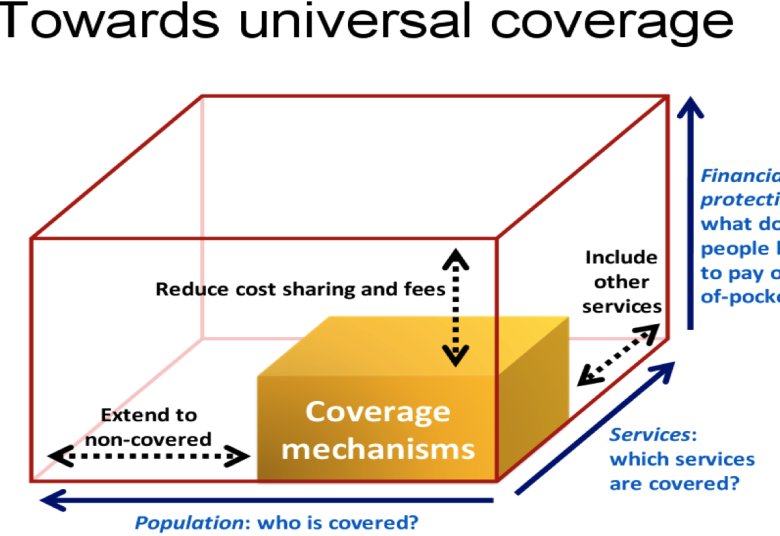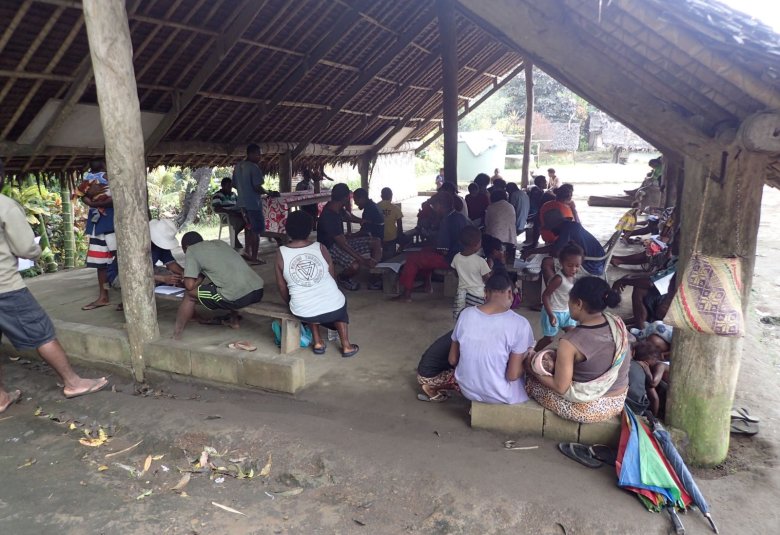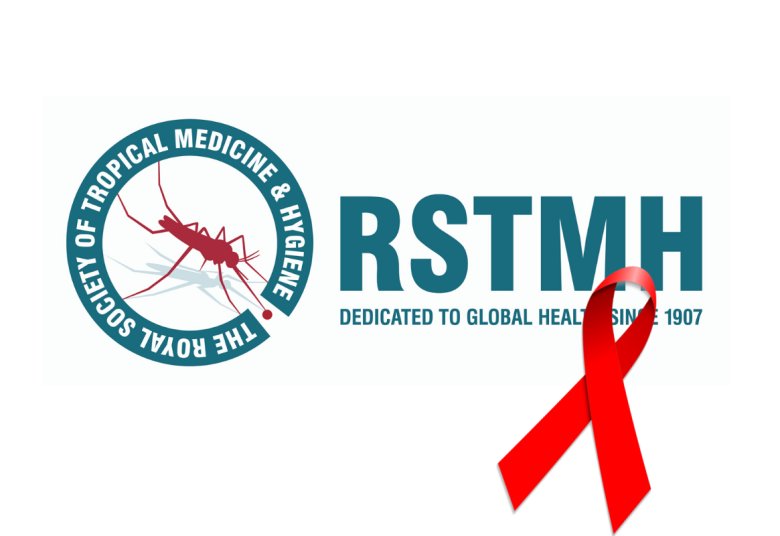Friendship Bench and its benefit during COVID-19
What is the Friendship Bench?
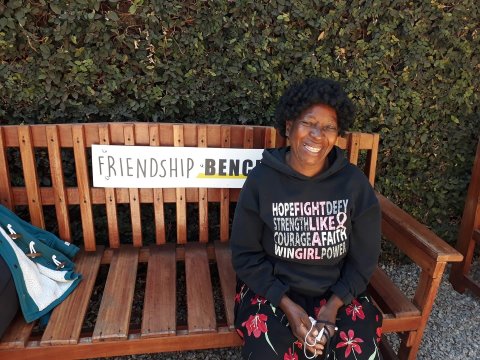
First and foremost, the Friendship Bench is a safe space to talk, to find a sense of belonging and to connect with people who understand.
This evidence-based innovative talk therapy concept originates from Zimbabwe, a landlocked country in southern Africa, which is affected by socioeconomic hardship, the HIV pandemic and an immense treatment gap in mental health care. Zimbabwe has a high prevalence of common mental health disorders such as depression and anxiety. Rooted in a community approach and guided by our values of empathy and connection, the Friendship Bench trains lay health workers to deliver problem solving therapy to clients who seek accessible and affordable mental health care. The Friendship Bench counsellors represent a group of strong elderly women (referred to as grandmother, or in one of the local languages, Shona: Gogo). The Gogos live and work in their immediate community and are well respected and trusted. They are the traditional carriers of wisdom, which is the result of many years of life passed, struggles overcome, and problems solved. They are welcomed into the homes of their community members and sought out for support when issues arise.
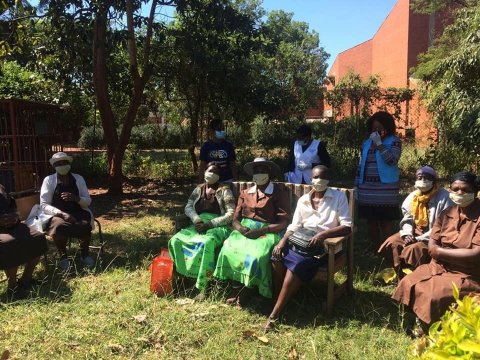
With the advent of the pandemic, Friendship Bench beneficiaries reported elevated levels of anxiety and stress around COVID-19 and the lockdown regulations imposed on the country. They were fearing for their livelihoods and the ever-present risk of starvation as most beneficiaries rely on meagre incomes brought in from daily activities, quite literally hand to mouth survival.
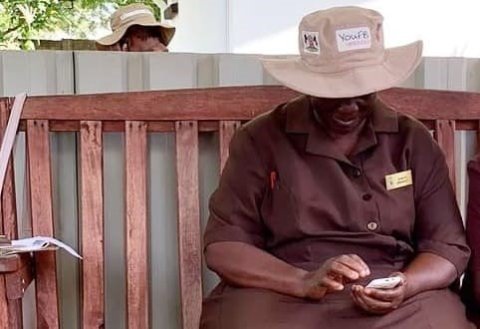
Before the COVID-19 crisis, Friendship Bench sessions were done face to face sitting on a wooden bench in the grounds of primary health care clinics in Harare and 2 other cities in Zimbabwe. It became evident that the Friendship Bench model had to be adapted and this had to happen quickly, in a way that sessions could be delivered while keeping everyone safe. We could foresee that mental health needs would increase as the national lockdown was heavily enforced; the informal trading sector was closed, people were faced with job losses and therefore income loss. The growing uncertainty of the future and what the pandemic was all about was on everyone’s doorstep. In light of all this, we decided to move to a phone-based service to continue to offer our successful intervention.
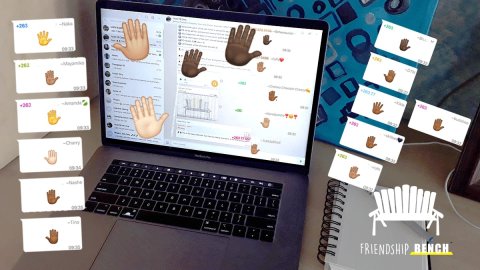
Friendship Bench wanted to be reliably available for people who wanted to share their story and be listened to with empathy in a judgement free environment.
Mobile network coverage is wide in Zimbabwe and many people use the messaging platform “Whatsapp” to communicate. Cellphone providers offer data bundles specifically for the messaging app which are often still beyond what many struggling to find enough income to pay the bills can afford.
Thus, we faced three challenges:
- Do the Friendship Bench grandmothers have phones and will they be willing to shift to using them;
- How do we train them on how to conduct sessions over the phone;
- What are the associated costs in order to supply the counsellors with airtime?
We had already piloted engaging people in peer-led WhatsApp group discussions on youth relevant topics in our Youth Friendship Bench program. We had also started to offer online counselling in our Open House program which is run by the Friendship Bench research team. They all underwent the online training via WhatsApp to deliver the intervention free of charge to anyone who needed support.
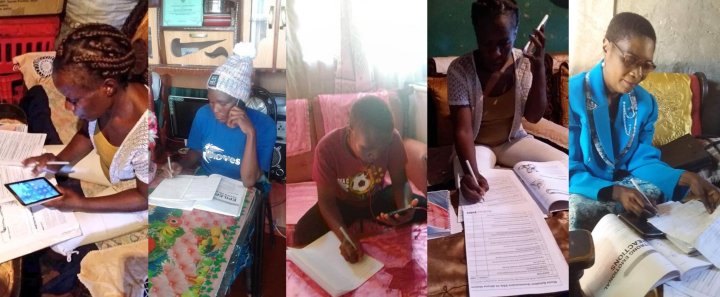
A quick survey of a group of 11 grandmothers revealed that they were more than happy to be part of the phone-based work and the ones with phones expected to be trained.
We developed an 8-hour training on how to conduct sessions over the phone with special emphasis on keeping rapport when not in the same space, how to manage clients’ emotions, how to share basic knowledge on the pandemic, how to collect the basic data from their clients and how to keep data safe, and mostly how to reach clients who in other times would have been referred to the grandmothers at the clinic. The grandmothers proved to be enthusiastic learners and continuously showed their wish to support their communities.
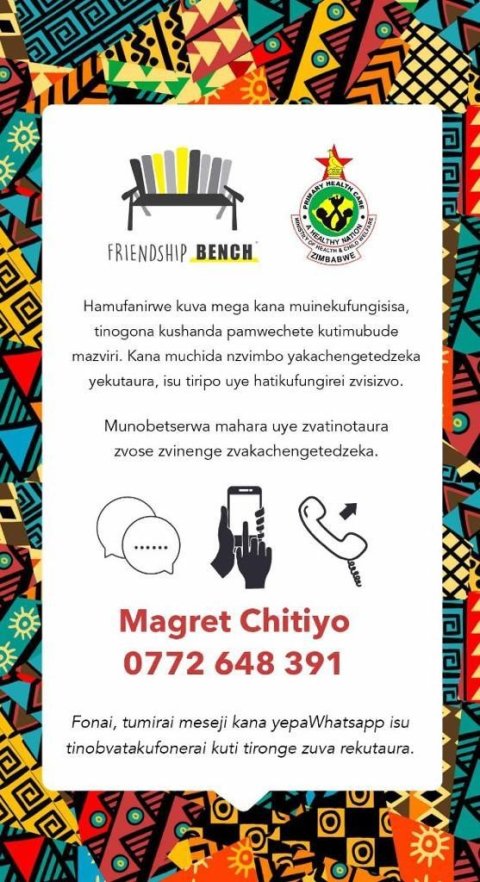
After the successful training, the graduates received specially designed electronic business cards to create awareness of the Friendship Bench open line services within their communities.
We are currently covering the costs of the open line service and hope to be eligible for a national free short code in order for our services to be accessible for all those in need.
To date, 253 counsellors have been trained and 720 clients have had sessions. Clients who would have come to the clinics are now able to connect and continue to talk with their counsellor. Furthermore, new clients who found out about us on social media are reaching out to us for the open line talk therapy.
We continue to get positive feedback from those who receive the Friendship Bench intervention. As an organization with a strong research record, we are planning to evaluate our open line program for its acceptability and effectiveness.
In the time of a pandemic that requires us to physically distance from one another, we are working on bringing people together to fight the negative effects of loneliness.
Our services are available for anybody and besides bringing knowledge about mental health to people, we continue to strive to create safe places and a sense of belonging with a Friendship Bench within walking distance for all.
